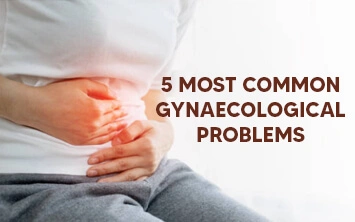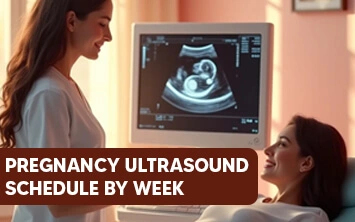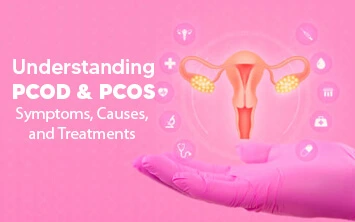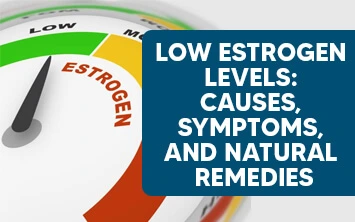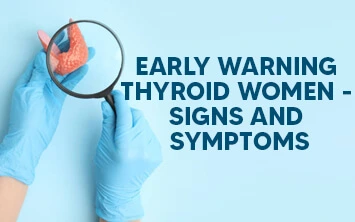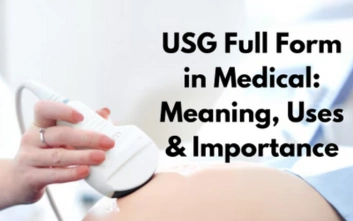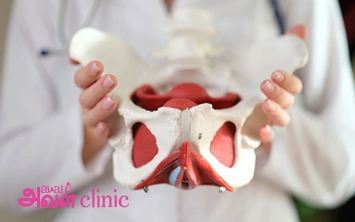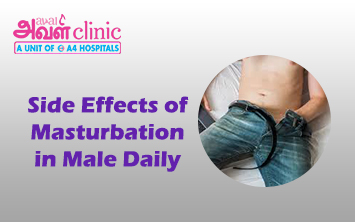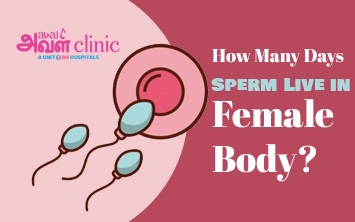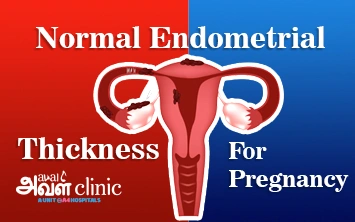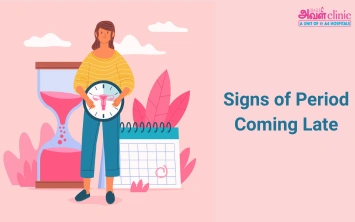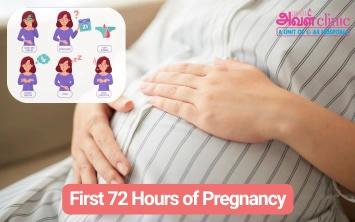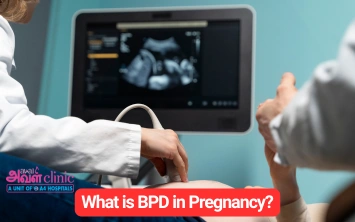Published on: August 5, 2025
Author: Admin
Every individual may have experienced the discomfort of bloating and gas at least once in their lifetime. Bloating during pregnancy can somewhat differ from it. It comes with a lot of discomfort, including constipation. Changes in hormone production, particularly the spike of progesterone, soon after conception, are a significant contributor to this condition.
Even though bloating and gas can cause several discomforts, it generally is not a sign of concern. The condition can be prevented through simple dietary changes and other habits.
This blog has come up to help you ease the discomfort associated with bloating and gas during pregnancy.
What are the Reasons for Bloating and Gas During Pregnancy?
Before getting to know how to prevent pregnancy bloating, let’s explore what causes the condition.
Hormonal Changes
Pregnancy can cause hormone fluctuations, especially progesterone. The spiking levels of progesterone hormone are crucial to prepare the uterus for implantation, support embryo development, and maintain a healthy pregnancy.
On the contrary, increased levels of progesterone hormone can also cause pregnancy bloating and gas. This happens as the hormone can relax the digestive muscles, which typically allows the food to be processed slowly. This may potentially lead to the accumulation of more gas in the intestines, thus causing bloating.
Pressure from the Growing Baby Bump
As the pregnancy advances, the growing bump can pressure (compress) the digestive tract muscles. The pressure can physically hinder the movement of food through the digestive system. By disrupting its normal functioning, pregnancy can potentially lead to bloating and gas.
Constipation
Another essential reason for bloating and gas occurrence while pregnant is constipation. Since the increased levels of progesterone hormone slow down the digestive process, it traps the stool inside the intestines. This contributes to constipation during pregnancy. When your bowel movements are slowed down, it can ultimately produce more gas and cause bloating and discomfort.
Dietary Changes
Several women notice their food cravings being increased while pregnant. The cravings may sometimes include sugary products and fried foods. Both of which can contribute to bloating and gas. Foods like chickpeas and cabbage can also build up gas in the maternal body and cause bloating.
Increased Blood Circulation
Pregnancy can certainly increase the blood circulation throughout the maternal body, including the digestive system. This increased blood circulation in the digestive system can sometimes make you feel fuller and bloated even if you haven’t eaten anything.
Iron Supplements
The iron supplements, when taken regularly, can cause bloating and gas, especially during pregnancy. This is because iron can irritate the digestive system and slow down the digestive process. The symptoms of the discomfort may include constipation, nausea, vomiting, and bloating. It can also build up gas in the stomach.
Need expert advice? Consult our doctors now!
Call Now: 80047 80048How to Prevent Bloating and Gas During Pregnancy?
Following are some of the tips from fertility experts that can help prevent bloating and gas during pregnancy.
Stay Hydrated
Keeping yourself well hydrated throughout the day can predominantly help with digestion. This is possible because water can process the food more effectively. It can also help to relieve constipation, which is the common cause of bloating and gas. Furthermore, having an adequate amount of water can help with flushing out excess sodium from the stomach, a significant contributor to water retention and bloating.
Eat Smaller Meals
During pregnancy, many experts suggest consuming smaller, but frequent meals instead of aiming to consume three larger meals. This allows your digestive tract to have enough time to process the food. This approach can also help to manage common pregnancy discomforts like heartburn, indigestion, bloating, and gas. Rather than aiming to consume three larger meals, you can consider consuming more frequent meals in a smaller portion, that is, 5 to 6 meals in a day. It can significantly help to minimise the pressure on the intestines due to overeating.
Consume Dietary Fibre Gradually
The excessive consumption of dietary fibre can cause bloating and gas. Even though fibre is good for digestive health, excessive intake can lead to digestive issues. Bloating, gas, and sometimes even diarrhoea can result from consuming too much dietary fibre, especially within a short period. To minimise the risk, you can introduce fibre in your diet gradually with smaller portions. Fibre-rich foods like whole grains, legumes, fruits, vegetables, nuts, and seeds can be consumed in smaller amounts gradually. Along with it, the intake of sufficient water is crucial in order to prevent pregnancy bloating.
Include Physical Activity
Gentle exercises like prenatal yoga and walking can largely help with preventing bloating and gas while pregnant. This is because physical activities, especially stretches like pelvic tilts, can promote blood circulation, stimulate digestion, and encourage the passage of gas through the colon. All of these can promote better bowel movements and alleviate digestive discomfort.
Eat Probiotics
Probiotics play a key role in reducing bloating and gas during pregnancy. Including probiotics in your everyday meal can largely help with improving digestion and alleviating discomfort associated with it. Probiotics are rich in healthy gut bacteria. During pregnancy, you can eat probiotic-rich foods like curd or take probiotic supplements to improve your digestion. However, having a consultation with the healthcare provider before taking these supplements is essential.
Add Herbal Tea
Certain herbal teas, like peppermint and ginger tea, are known to have soothing properties that can help alleviate bloating and gas during pregnancy. However, it is important to drink herbal teas in smaller amounts. It is also important to have a consultation with the healthcare provider before including herbal teas in the pregnancy diet.
Avoid Gas-Producing Foods
Even though foods like cabbage, cauliflower, broccoli, lentils, and chickpeas are significant for a pregnancy diet, they can contribute to producing more gas in the stomach. Several fertility experts suggest avoiding these foods if women experience digestive issues while pregnant. Minimising the intake of foods that produce more gas can largely help with easing bloating and gas.
Chew Food Slowly and Thoroughly
Chewing food slowly and thoroughly instead of gulping can vastly help with improving digestion. The chewed food can promote both mechanical and chemical digestion. The chewed food, mixed with saliva (chemical digestion), can break down carbohydrates and fats. Whereas, when it comes to mechanical digestion, chewed food can reduce the burden on the digestive system to process the food. Both of which are beneficial for the expectant mothers to minimise the risk of digestive discomforts like bloating and gas.
When to Seek Medical Help about Bloating During Pregnancy?
While it’s common for pregnant women to experience bloating and gas, it can sometimes be an indication of an underlying medical condition. It is significant to know the difference between pregnancy-related discomfort and symptoms requiring medical attention.
Numerous pregnancy-related discomforts can be reduced with home remedies and lifestyle modifications. Whereas, some symptoms may indicate the need for medical help. For instance, bloating can be managed through gentle exercises, but severe nausea and vomiting may need medical help.
Listed below are some of the symptoms that may necessitate medical intervention.
Severe or Persistent Pain
If you experience persistent and severe abdominal pain that lasts for more than an hour during pregnancy, it indicates the need for medical attention. In addition, if the symptom is accompanied by other discomforts like fever, blood in the stool or vomit, it is highly suggested to visit the healthcare provider immediately.
Severe Constipation
It is advisable to visit the healthcare provider immediately:
- If constipation persists for more than 4 days, or
- Doesn’t improve even after trying home remedies, or
- If you notice mucus or blood in the stool.
Furthermore, it is also advisable to seek medical help if you are unable to pass gas for more than 3 days.
Severe Diarrhea
You may need medical attention:
- If diarrhoea (loose stools) continues to happen for more than a couple of days
- You notice pus or blood in the stool
- You pass more than 6 loose stools within a day
- You have a high temperature exceeding 102°F
- Severe pain in the rectum or abdomen
- Symptoms of dehydration
Symptoms of acid reflux
Acid reflux, also referred to as heartburn, is a common discomfort that is found in many pregnant women. However, if the symptom persists even after trying home remedies, it is best to have a consultation with the healthcare provider.
Summary
Bloating and gas in pregnancy can be experienced by many women. Even though it is common, it can come with annoying symptoms. The symptoms may usually last for a short period. It can be reduced with certain lifestyle changes and dietary habits. The changes may include staying hydrated, eating fibre-rich foods, doing physical activities, consuming small but frequent meals, and more.
Bloating and gas during pregnancy can be managed. However, if the symptoms persist even after making certain changes, it is highly suggested to have a consultation with the healthcare provider. Understanding pregnancy-related discomforts and symptoms requiring medical attention is crucial to managing a healthy pregnancy.


